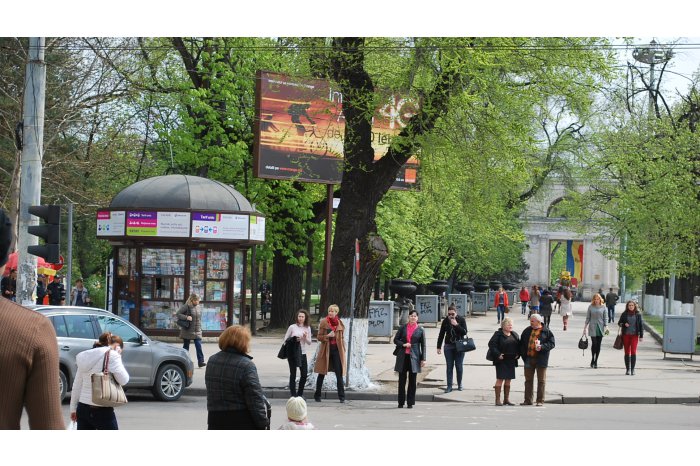Independent analytical centre from Moldova presents Country State Report 2017
15:26 | 06.10.2017 Category: Economic
Chisinau, 6 October /MOLDPRES/ - Prospects for the development of Moldova are hit by a string of economic, social and demographic challenges, according to the Country State Report 2017, unveiled by the Expert Grup Analytical Independent Centre and Friedrich-Ebert-Stiftung Moldova.
According to a co-author of the study, executive director of the Expert Grup Analytical Independent Centre Adrian Lupusor, the 2017 issue of the Country State Report is set to analyze the differences of development between Moldova and the countries from the Central and Eastern Europe and to provide constructive solutions to overcome them.
Experts found out that the deepening of the domestic vulnerabilities and the non-turning to account of the export potential, besides other problems dealing with the informal employment, quality of the human capital, as well as the tendencies from the unnoticed economy, have turned larger the distance between Moldova and the EU countries, including the ones of the Central and Eastern Europe EU members. These challenges significantly undermine the prospects for Moldova’s development.
Thus, because of the economic discrepancies, Moldova’s competitiveness on sales markets is undermined, the quality of the human capital is hit by the social gaps and the one of the economic/financial capital is compromised as a result of the governance discrepancies.
The period 2016-2017 was marked by the bolstering of the importance of the Russian factor in Moldova by the presidential institution and the left-wing parliamentary opposition. This fact misled the society and the business environment as regards the sustainability and continuity of the country’s European vector, the publication also reads. According to experts, this feeling was worsened by the slow reforms and some actions which estranged Moldova from the Association Agenda.
Both the level and the structure of Moldova’s economic growth “lagged much behind the tendencies from the Central and Eastern Europe, which once again shows the more pronounced erosion of the country’s competitiveness.” The authors of the publication also said that the deficit of investments and capital maintained Moldova at a lower level of specialization and competitiveness, which worsened the discrepancy between the labour productivity from Moldova and the reference countries.
Such an increase in the gaps of development against the neighbours from the West must represent an alarm signal for decision-makers for such a small country, which is so dependent on the export markets, the labour force and the capital of investors and development partners. And namely, the decision-takers should focus on speeding up the key reforms which would provide, till 2030, the country’s convergence at the level of development of the EU countries from the Central and Eastern Europe, the publication also reads.
Experts said that the emphasis of Moldova’s development policies should be changed towards turning to account the main source which can ensure long-term competitiveness: the people. The education sector “needs a complete reformation.” The reform of the system of governance of institutions “remains the zero priority, which must represent the starting point for the systemic reforms,” the Country State Report 2017 reads.
(Reporter V. Bercu, editor A. Raileanu)

